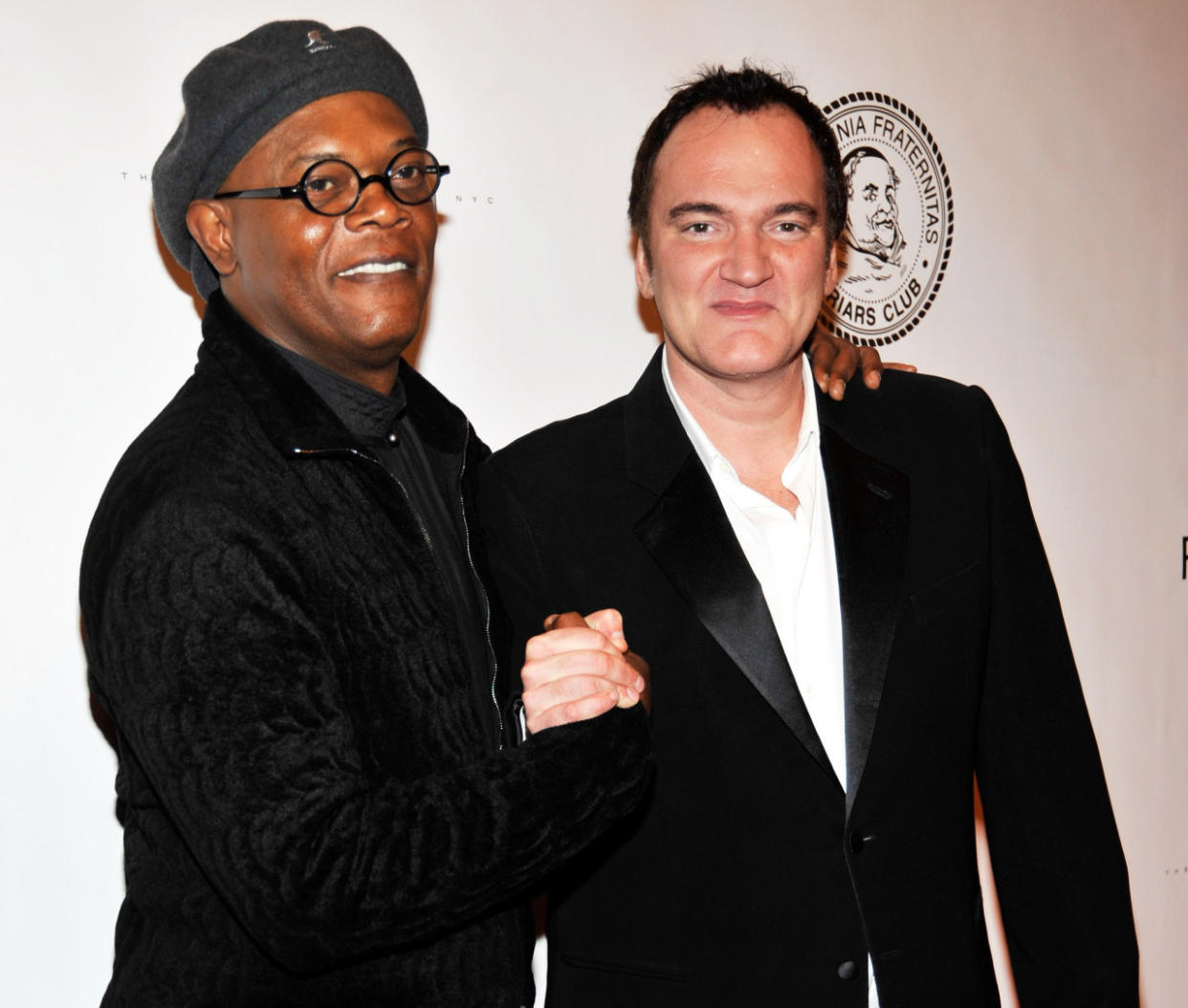Quentin Tarantino Didn't Like Critics of 'Django Unchained' Pointing Out That He's White

Samuel L. Jackson and Quentin Tarantino in 2010 (Getty Images)
Quentin Tarantino still doesn’t care much about the criticism he received over the use of racial epithets in 2012’s Oscar-winning Django Unchained, but three years since its release, the 52-year-old writer-director is willing to admit that there were some elements of the backlash that stung him – particularly when it comes to the subject of race.
“When the black critics came out with savage think pieces about Django, I couldn’t have cared less,” Tarantino tells Bret Easton Ellis in a new interview in the New York Times’ T Magazine. “If people don’t like my movies, they don’t like my movies, and if they don’t get it, it doesn’t matter. The bad taste that was left in my mouth had to do with this: It’s been a long time since the subject of a writer’s skin was mentioned as often as mine. You wouldn’t think the color of a writer’s skin should have any effect on the words themselves. In a lot of the more ugly pieces my motives were really brought to bear in the most negative way. It’s like I’m some supervillain coming up with this stuff.”
At the time of Django’s release Tarantino was criticized by several black filmmakers, including Spike Lee, for making a film about slavery that was loaded with the n-word. The novelist Ishmael Reed opined in the Wall Street Journal that Django was “a Tarantino home movie with all the racist licks of his other movies,” while The New Yorker’s Jelani Cobb wrote that Tarantino’s continued use of the n-word was tantamount to “racial ventriloquism.”
After all, it wasn’t the first time Tarantino’s use of the epithet had irked critics: in 1994, his Pulp Fiction was derided for using the term repeatedly (mostly by a character portrayed by Tarantino himself), as was his 1998 crime flick Jackie Brown. Tarantino, not one given to public self-reflection, made no apology for Django, which which was defended by star Jamie Foxx throughout its theatrical run, and which won Tarantino an Oscar for Best Original Screenplay.
Elsewhere in Ellis’ story, the filmmaker gave a backhanded compliment (at best) to Selma director Ava DuVernay. She was at the center of last year’s Oscar season controversy, when she wasn’t nominated for Best Director, despite the film’s critical success and nomination for Best Picture.
‘‘She did a really good job on Selma, but Selma deserved an Emmy,“ Tarantino, the noted film loyalist, remarked with a shrug.

